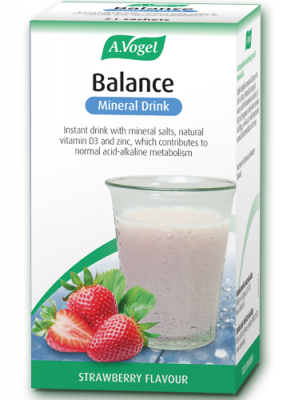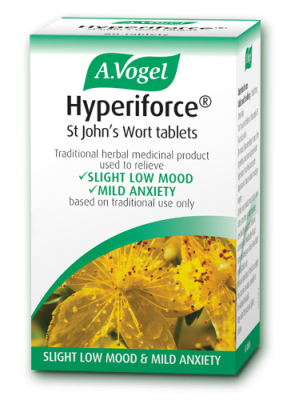What’s the link between low mood and low energy?
When we’re feeling low it can become incredibly difficult to find motivation to partake in our daily activities. This lack of motivation and daily struggle can then lead us to feel tired and low in energy. Feeling low can impact many areas of our life such as our diet, sleep and our activity levels, all three of these areas are also extremely important when it comes to our energy levels. So it becomes easy to see how low mood can impact our energy levels.
Sleep
Even if low mood doesn’t dramatically impact our sleep and we still get the recommended bare minimum amount of sleep (around 6 hours or so) we can still wake up feeling without feeling refreshed. This is thought to be because those who experience low mood and depression generally tend to have poorer quality sleep. This means it takes longer to get to sleep, there is little or no deep restorative sleep, we awaken more frequently throughout the night, we don’t sleep for as long and often wake up early without being able to get back to sleep.
Diet
Low mood and depression can affect our eating habits too, with changes in weight and appetite thought to be one of the most common signs of the condition. Your food is your fuel and has a direct impact on your energy levels. So, if low mood causes us to lose our appetite our energy levels are sure to suffer.
Similarly, low mood can make us feel like eating more however, when we overeat because of low mood, we often crave all the wrong sorts of foods for our energy levels. Usually when we feel low we crave sugary foods that give us a temporary spike in sugar and insulin levels, processed sugar also increases endorphins that can boost our mood and provide a temporary high.
Activity levels
Low mood can wreak havoc on our motivation, self-esteem and interests and can make it difficult to remain active throughout the day – even getting out of bed in the morning can become a struggle! This can cause us to withdraw from people, activities and events that would usually cause us pleasure because we just don’t feel like we have the energy to cope. Unfortunately, this can fuel a viscous cycle where we feel low so don’t take part in the things we love but, because we are denying ourselves these enjoyable activities we can end up feeling worse. What’s more, this cycle can become so repetitive and continuous that we forget how much we enjoy these activities. This sort of isolation is one of the major contributing factors in the development of depression.
How to tell the difference between tiredness and low mood

Tiredness is a completely normal feeling and it is our body’s way of telling us to pull back a little. However, if your tiredness persists for more than a few weeks then it may be time to consider that your mood has a role to play. A good way to determine whether you’re tired or feeling low is to look at your levels of enthusiasm. Often when we feel low in mood we experience apathy and a lack of interest in things that we usually always love.
Other factors that contribute to low energy levels:
• Chronic fatigue syndrome
• Diet
• Poor sleep
• Medication
Easy ways to boost your energy levels:
1) Eat energy-boosting foods
Some foods help us to sustain energy whilst others can create blood sugar spikes and crashes. Food can also be beneficial for our mood and help to stabilise our mood and energy levels. Eating the right sorts of food regularly can also help to prevent mood swings and nutritional deficiencies that can cause a number of unpleasant side effects – low mood and energy slumps included! Check out our blog for some top energy-boosting foods to try.
Why not try our tasty Balance Mineral Drink to help reduce fatigue and tiredness? This drink is an excellent source of minerals including zinc, magnesium, calcium, potassium as well as your recommended daily amount of vitamin D. Magnesium helps to prevent fatigue and regulate our mood. Vitamin D is thought to play a role in the development of Seasonal Affective Disorder (SAD) and depression with one study finding that those with a vitamin D deficiency were more likely to be at risk for developing depression.1
2) Exercise regularly
Exercising has been scientifically proven by countless studies to be beneficial for helping to lower levels of stress, anxiety and depression. It not only helps to boost energy levels, but also helps to boost our mood by releasing feel-good endorphins into our system. Endorphins are released by the pituitary glands when our brain recognises exercise as a form of physical stress. These endorphins help relieve pain and induce feelings of pleasure and euphoria such as that experienced during a ‘runner’s high.’
Exercise also helps to boost our energy levels; as our heart rate increases, more oxygen is pumped into the body allowing the brain and body to both function at a higher level. What’s more, exercise also helps us to regulate our sleeping patterns. It tires us out in preparation for sleep, improves sleep quality and duration and resets our sleep/wake cycle – particularly if we exercise outdoors and allow ourselves to absorb natural daylight. Good quality sleep will definitely have some beneficial effects for our energy levels so try to fit in exercise where you can!
3) Helpful herbs
When it comes to lifting low mood the herb St John’s Wort, also known as the sunshine herb, is perhaps the most commonly turned to. St John’s Wort contains several chemicals including hypericin, hyperforin and flavonoids which are thought to act by increasing the availability of serotonin, dopamine and norepinephrine.
St John’s Wort is also thought to have other substances that could potentially boost your mood however, more research into this area is needed to fully understand how this sunshine herb works.2
Hyperiforce is our licensed herbal remedy that aims to help provide relief from feelings of low mood. Containing freshly harvested, organically cultivated extracts of the St John’s Wort herb, this remedy is the perfect way to help lift your mood.
4) Maintain a manageable workload
When we’re all work and no play it can be easy to feel low and become unenthused and unmotivated, try to balance your responsibilities by doing things that are fun, that you enjoy and that you love. If we are overwhelmed by our responsibilities we are more likely to feel low, irritable and become more sensitive to stress. It’s important to maintain a good work/life balance and to make time for the things you enjoy.
5) Manage your stress levels
Stress and low mood can often go hand-in-hand and when we are stressed our body uses up important nutrients and resources. Stress can result in a whole range of emotional symptoms including low mood, irritability, anxiety and loneliness – it can even affect our memory and make us more forgetful! What’s more, stress can have a range of unpleasant physical side effects such as constipation and headaches. Try to reduce your stress levels by meditating or practicing relaxation techniques such as deep breathing.











